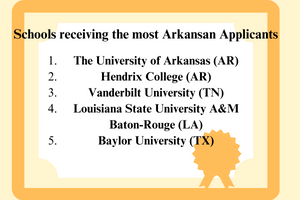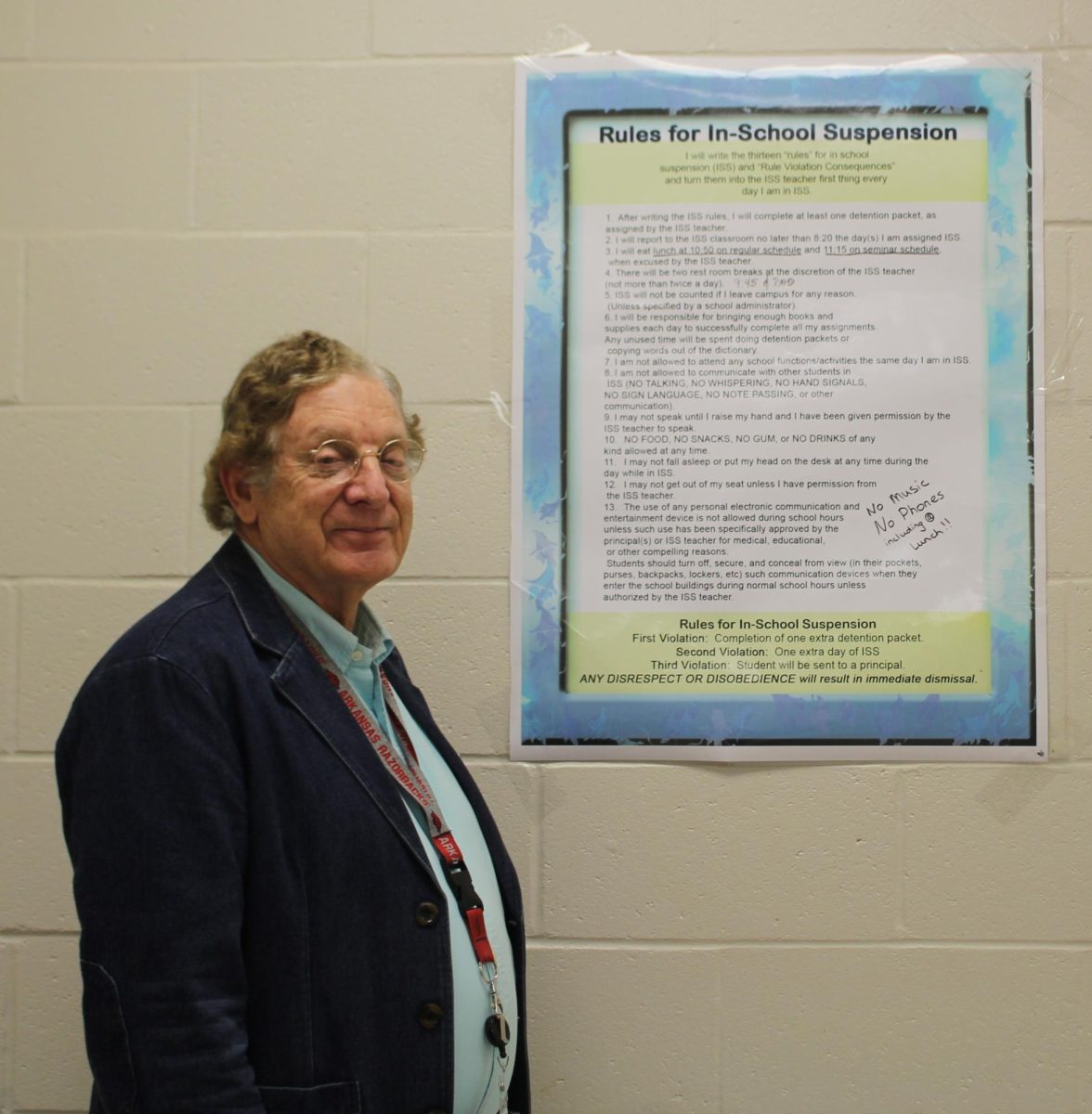
Nationally, the number of college applicants is increasing, as are the number of applications submitted by each student, according to the Common Application (CA). Despite this, the number of applicants and applications from Arkansas have gone down 1% and 3% respectively, as shown by the CA.
Students in Arkansas may face barriers to the application and admissions process.
Last year, Arkansas was ranked 43 in national public education by US News, determined by the quality of K-12 education and higher education. Considerations included college graduation rates, debt, high school graduation rate and if students met benchmarks on standardized tests, among others.
In Arkansas, students scored below the national average on the ACT by nearly one point, and only 14% met benchmarks.
Additionally, 29% of Arkansas college applicants received a CA fee waiver to apply to schools and 32% were first-generation applicants – further barring the process.
“Being a first-generation college student is the worst. Having no one to go to for guidance and steps into applying for admissions can be scary,” said Magail Mandujano, 12. “It is difficult to know whether you are doing things right or wrong, or whether you are doing anything right at all. It’s a whole new world of feeling lost and overwhelmed.”
An article by the Education Advisory Board (EAB) showed Advanced Placement (AP) courses were beneficial to high school students. Those who took AP classes were more likely to enroll in college, and were better prepared for the rigor of secondary education.
Of all students who took AP tests in Arkansas in 2022, only 18% passed, more than 3% less than the national average.
Even after getting into college, students may still feel the impacts of their high school foundation.
“Being from Arkansas definitely influenced my college experience. It has for sure been a conversation starter for many of my friendships, and it was a culture shock moving from Rogers to New York,” said Maria Camerlingo, RHS graduate and current junior at New York University. “I wasn’t used to the pace of life and having limited access to the outdoors was hard at times, especially during the New York winters.”
However, there may be an upshot for Arkansan students.
In recent years, programs like the Small Town and Rural Students network have helped connect elite colleges to neglected areas – historically impoverished places and small towns – to promote regional diversity at their institutions. This can provide greater application resources and opportunities to previously overlooked students.
“I feel like you have as good of a chance as anybody else,” said Madison Chandler, 12. “If you know that you worked hard throughout school and you truly want something you’ll make it happen.”







